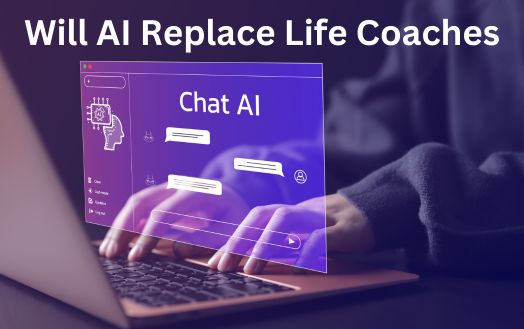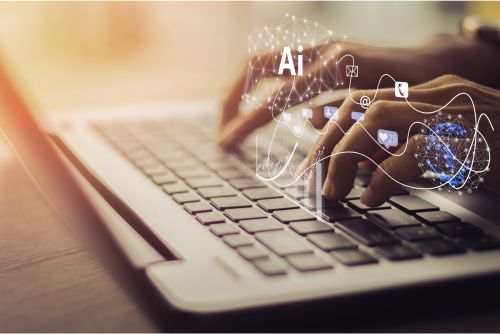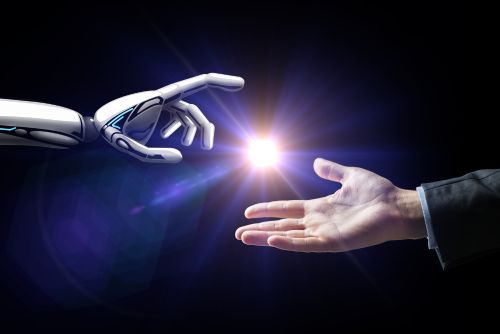
The rise of artificial intelligence (AI) has sparked discussions and debates about its potential to replace human jobs across various industries. The coaching profession is no exception to this speculation. With the advancements in AI technology, there is curiosity about whether AI can replace human coaches and provide the same level of guidance, support, and motivation. In this article, we will explore the role of AI in coaching and discuss its potential to replace human coaches.
Life coaching Dubai is a multifaceted profession that focuses on providing guidance, support, and motivation to individuals or teams in achieving their goals. Life coach help their clients navigate through challenges, develop new skills, and reach their full potential. They employ empathy, emotional intelligence, and expertise to facilitate personal and professional growth. The coaching process often involves active listening, asking powerful questions, and providing constructive feedback tailored to an individual's needs.
AI has made significant strides in recent years, enabling machines to perform complex tasks and mimic human behavior. Natural Language Processing (NLP) algorithms, machine learning, and predictive analytics have enhanced AI's ability to understand and respond to human interactions. AI chatbots and virtual assistants can now simulate human-like conversations, offering support and guidance to individuals.
To understand the potential impact of AI on the coaching profession, it is crucial to first grasp the role that life coaches play. Life coaches provide a human touch and a unique level of connection that cannot be replicated by AI. They establish a trusted relationship with their clients and create a safe space for personal and professional exploration. Dubai life coach bring their expertise in various areas, such as career development, personal growth, and relationship building, to guide individuals in achieving their goals. The coaching industry has grown exponentially in recent years, emphasizing the importance of human interaction and the value that coaches bring to their clients' lives.
One of the core competencies of effective coaches is their ability to provide the human touch in coaching. Coaches possess emotional intelligence, which enables them to understand and connect with their clients on a deeper level. They can read and interpret body language, facial expressions, and tone of voice to grasp the nuances of their clients' emotions and experiences. This understanding allows coaches to provide tailored guidance and support that addresses their clients' unique needs. The human interaction in coaching creates a safe and non-judgmental space for clients to explore their challenges and aspirations. It fosters trust, vulnerability, and meaningful connections, which are essential for the coaching process to be effective and impactful.
Effective coaches possess a set of core competencies that contribute to their success in helping individuals achieve their goals. Coaching experience is a valuable asset, as it allows coaches to draw from a wealth of knowledge and expertise in guiding their clients. They are skilled in helping clients define and clarify their specific goals, providing a clear direction for the coaching process. Coaches also excel in providing constructive feedback that supports clients' growth and development. They offer guidance and insights that challenge their clients to expand their perspectives and explore new possibilities. Continuous professional development is a key aspect of effective coaching, as coaches stay updated on the latest research, techniques, and best practices to enhance their coaching skills and deliver high-quality service to their clients.

With the rapid advancements in technology, AI has emerged as a potential tool to enhance the coaching experience. AI, powered by sophisticated algorithms and vast amounts of data, has the capability to analyze patterns, provide insights, and offer innovative solutions. AI coaching platforms and tools have the potential to reach a wider audience, provide personalized recommendations, and offer scalable coaching interventions. The emergence of AI in coaching opens up new possibilities for accessibility, affordability, and continuous learning. However, it is important to understand the limitations and ethical considerations associated with integrating AI into the coaching realm.
AI is already being used in coaching in various ways. Virtual assistants powered by AI technology can simulate human-like conversations and offer support, guidance, and accountability to individuals. These virtual assistants use machine learning algorithms to analyze data and provide tailored recommendations and interventions. Chatbots, another AI application, can engage in conversations with individuals, answer queries, and provide insights. AI algorithms analyze vast amounts of data to identify patterns and trends, which can be used to personalize coaching interventions and offer valuable insights to clients. The integration of AI in coaching has the potential to enhance the coaching experience and support individuals in achieving their goals.
AI coaching tools and platforms are becoming increasingly popular in the coaching industry. Here are some examples:
Integrating AI into coaching offers several advantages that can enhance the coaching experience:
One of the key advantages of integrating AI into coaching is increased accessibility and reach. AI-powered coaching platforms can leverage the internet to provide coaching services to individuals in remote locations. This eliminates geographical barriers and allows individuals to access coaching support from anywhere in the world. Additionally, AI can support hybrid coaching models, where individuals can receive a combination of in-person and virtual coaching sessions, enhancing flexibility and convenience. The scalability of AI technology enables coaching interventions to reach a wider audience, addressing the growing demand for coaching services. AI algorithms can analyze vast amounts of data to identify patterns and trends, allowing coaches to offer tailored coaching interventions that address the unique needs of different individuals.
AI's ability to analyze vast amounts of data through machine learning algorithms enables personalized coaching interventions. By processing information about an individual's behavior, preferences, and goals, AI systems can provide tailored recommendations and insights. This personalization enhances the coaching experience by addressing the specific needs of each individual. AI technology can identify patterns and trends in the data, offering valuable insights that can lead to better results. By leveraging the power of data analysis, AI-enabled coaching interventions can provide individuals with targeted guidance, support, and strategies to overcome challenges and achieve their goals. The personalized approach offered by AI technology enriches the coaching experience and increases the likelihood of positive outcomes for clients.
AI technology has made significant strides in recent years, particularly in the fields of algorithms and machine learning. These advancements enable AI systems to continuously learn and adapt based on data analysis. In the coaching realm, this means that AI-powered coaching interventions can constantly improve and offer updated insights and recommendations. AI algorithms can identify patterns and trends in the data, allowing coaches and clients to benefit from ongoing learning. The continuous learning and adaptation of AI technology ensure that coaching interventions remain relevant and up-to-date, providing individuals with the most effective strategies and support. The ability of AI to adapt to changing circumstances and client needs enhances the coaching experience and increases the potential for successful outcomes.

While AI has its advantages in coaching, it also has limitations that prevent it from fully replacing human coaches. One of the key limitations is the lack of emotional intelligence and the human element. Emotional intelligence is the ability to understand and empathize with others, which is crucial in coaching. The human connection and intuition that human coaches possess are difficult to replicate with AI technology. Additionally, AI algorithms may struggle with contextual misinterpretation, as they lack the depth of understanding of human behavior and the ability to navigate complex interpersonal dynamics. These limitations highlight the importance of the human touch in coaching.
Emotional intelligence plays a significant role in coaching, as it allows coaches to understand and connect with their clients on a deeper level. Human coaches possess empathy, the ability to recognize and share the emotions of others, which is essential in creating a safe and supportive coaching environment. Coaches can pick up on subtle cues such as tone of voice, facial expressions, and body language, which provide valuable insights into their clients' emotions and needs. These nonverbal cues are difficult for AI technology to interpret and respond to accurately. The challenge of replicating emotional intelligence highlights the unique abilities of human coaches and the importance of the human element in the coaching relationship.
AI algorithms, although sophisticated, can struggle with contextual misinterpretation in coaching. Human interaction involves complex dynamics that are challenging to navigate for AI technology. Tone of voice, body language, and other contextual cues are crucial in understanding the true meaning behind clients' words. AI may misinterpret these cues or provide generic responses that do not address the nuances of the client's situation. The ability of human coaches to interpret and respond to contextual cues is a valuable skill that AI technology is still developing. Contextual misinterpretation by AI highlights the limitations of technology in fully replicating the depth of human understanding and the adaptability of human coaches.
Integrating AI into coaching raises important ethical considerations and privacy concerns. AI technology relies on vast amounts of data to provide personalized recommendations and interventions. It is crucial to ensure the protection of this data and maintain client confidentiality. Coaches have an ethical responsibility to prioritize the privacy and security of their clients' information. Additionally, AI coaching interventions must adhere to ethical guidelines and standards to ensure that the recommendations and guidance provided are in the best interest of the clients. Coaches must also consider the potential biases and limitations of AI algorithms and ensure that they do not compromise the quality and effectiveness of the coaching experience. Balancing the benefits of AI technology with ethical considerations and privacy concerns is essential in the integration of AI into coaching.

To understand the potential impact of AI on the coaching profession, it is important to compare the strengths and weaknesses of human life coach Dubai and AI coaching. Human coaches possess a unique ability to establish trust, build relationships, and adapt their approaches to individual needs. They bring emotional intelligence, empathy, and the human touch to coaching. On the other hand, AI coaching offers advantages in terms of accessibility, scalability, and data analysis. AI can provide personalized recommendations and insights based on vast amounts of data. However, it lacks the depth of human emotions, contextual understanding, and nonverbal communication. A comparative analysis highlights the complementary nature of human and AI coaching.
Human coaches bring unique strengths to the coaching profession. The human touch they provide creates a safe and supportive coaching environment that fosters trust, vulnerability, and growth. Human coaches possess empathy, allowing them to connect with their clients on a deep emotional level. They can understand and relate to their clients' challenges, aspirations, and emotions, providing meaningful guidance and support. Human coaches also continuously invest in their professional development, staying updated on the latest research, techniques, and best practices. This commitment to growth and learning enhances their coaching effectiveness. However, human coaches may have limitations in terms of availability, scalability, and data analysis. These challenges can be addressed through collaboration with AI technology.
AI coaching has its own set of strengths and weaknesses. AI technology offers scalability, reaching a wider audience simultaneously. It can provide coaching interventions to individuals who may not have access to human coaches due to geographic constraints or financial limitations. AI also has the ability to continuously learn and adapt based on data analysis. It can process vast amounts of data to provide personalized recommendations and insights. However, AI technology lacks the depth of human emotions, the ability to navigate complex interpersonal dynamics, and the adaptability of human coaches. AI coaching may struggle with contextual understanding and may provide generic responses that do not address the nuances of the client's situation. The limitations of AI coaching highlight the importance of integrating human coaches into the coaching process.
The future of coaching lies in a synergistic approach that combines the strengths of both human coaches and AI technology. Collaborative models between human coaches and AI systems can enhance the coaching process and deliver more comprehensive, personalized coaching interventions. Human-AI integration in the coaching industry can provide individuals with the best of both worlds – the empathy, adaptability, and human connection of human coaches, along with the accessibility, scalability, and data analysis capabilities of AI technology. This synergistic approach will shape the future of coaching, allowing individuals to benefit from a well-rounded coaching experience that combines human expertise and technological advancements.
Collaborative models between AI and human coaches are emerging in the coaching industry. These models combine the strengths of human coaches and AI technology to provide a more comprehensive coaching experience. In a hybrid coaching model, individuals can benefit from both in-person coaching sessions with a human coach and virtual coaching interventions powered by AI technology. This approach offers flexibility, convenience, and personalized insights. Human-AI integration in coaching allows for a broader range of coaching interventions, scalability, and continuous learning. The coaching experience becomes more holistic, adaptive, and tailored to individual needs. Collaborative models between AI and human coaches pave the way for the future of coaching, ensuring that individuals can access high-quality coaching support that combines the best of human expertise and AI technology.
Developing AI technology to complement human coaches is a key aspect of the future of coaching. AI can be harnessed to develop coaching tools and platforms that support human coaches in their work. These tools can provide data analysis, personalized insights, and virtual coaching interventions. The goal is not to replace human coaches but to enhance their coaching effectiveness and reach. By integrating AI into coaching tools, human coaches can leverage the power of technology to offer more personalized, data-driven coaching interventions. The development of AI technology must be guided by ethical considerations and the coaching industry's best practices. By complementing human coaches with AI technology, the coaching profession can evolve and adapt to the changing needs and demands of individuals seeking coaching support.

Real-world applications of AI in coaching have shown promising results. Case studies and success stories highlight the potential of integrating AI technology into coaching processes. These real-world examples demonstrate the effectiveness of AI-powered coaching interventions in supporting individuals in achieving their goals. Testimonials from coaches and clients provide insight into the value and impact of AI coaching tools and platforms. By sharing these real-world applications and success stories, the coaching industry can inspire and motivate coaches to explore AI technology, while also addressing any concerns or skepticism that may exist.
Several case studies have explored the integration of AI and human coaching in various contexts. These studies provide valuable insights into the effectiveness of combining human expertise with AI technology. For example:
| Case Study | AI Coaching | Human Coaching | Business Coach |
| Case Study 1 | AI-powered coaching interventions supported individuals in setting and achieving specific goals | Human coaches provided personalized guidance and support, adapting to individual needs | A business coach leveraged AI technology to analyze market trends and provide insights to clients |
| Case Study 2 | AI chatbots offered support and accountability, helping individuals stay motivated and track progress | Human coaches provided emotional support and guidance, addressing clients' unique challenges | A business coach used AI-powered tools to analyze financial data and offer recommendations for growth |
These case studies demonstrate the potential of AI and human coaching integration to provide comprehensive coaching support and deliver positive outcomes for individuals and businesses.
Testimonials from coaches and clients offer valuable insights into the impact of AI in coaching. Coaches who have integrated AI technology into their coaching practices have highlighted the benefits of AI-powered tools in enhancing the coaching experience. They have observed improvements in data analysis, personalized recommendations, and scalability. Clients have expressed appreciation for the convenience, accessibility, and insights offered by AI coaching platforms. They have found value in the combination of human expertise and AI technology, as it provides a comprehensive and tailored coaching experience. Testimonials from coaches and clients affirm the potential of AI in coaching and encourage further exploration and development of AI-powered coaching interventions. These testimonials also provide a platform for sharing best practices and success stories within the coaching community.

As AI technology becomes more integrated into coaching practices, it is essential to navigate the challenges associated with ensuring quality and upholding ethical standards. Quality assurance measures must be in place to evaluate the effectiveness and impact of AI coaching interventions. Ethical standards, aligned with coaching ethics, must guide the development and implementation of AI technology. Safeguarding client privacy, data protection, and confidentiality are paramount in the integration of AI into coaching. The coaching industry must establish clear guidelines and best practices to address the potential risks and ethical considerations associated with AI coaching. By navigating these challenges, the coaching profession can ensure that the integration of AI technology aligns with its core values and principles.
Setting standards for AI in coaching is crucial to ensure the ethical and effective use of AI technology. The coaching industry must establish guidelines and best practices that guide the development, implementation, and evaluation of AI coaching interventions. These standards should address ethical considerations, privacy concerns, and data protection. Ongoing professional development and training for coaches in AI technology are essential to maintain competence and understand the potential benefits and limitations of AI in coaching. By setting standards for AI in coaching, the coaching profession can promote responsible and ethical use of AI technology, while also embracing the opportunities and advancements it offers. The establishment of these standards will contribute to the credibility and integrity of the coaching industry.
Safeguarding the coach-client relationship is of utmost importance in the integration of AI into coaching. Trust and confidentiality are the foundation of the coaching relationship, and it is essential to ensure that these elements are maintained when AI technology is involved. Privacy concerns must be addressed, and measures should be in place to protect client data and information. While AI can offer convenience and personalized insights, the human element cannot be replaced. Coaches must emphasize the importance of the human touch, empathy, and adaptability in coaching. Open communication with clients about the use of AI technology and its limitations is crucial to maintain transparency and trust. By prioritizing the coach-client relationship and the human element, coaches can navigate the integration of AI technology in a way that preserves the integrity and effectiveness of coaching.
In the evolving landscape of coaching, the integration of AI presents both opportunities and challenges. While AI offers enhanced accessibility, personalization, and continuous learning capabilities, it falls short in emotional intelligence and contextual understanding. A synergistic approach that combines the strengths of human coaches with AI's data-driven insights is likely the future direction. By setting ethical standards, safeguarding relationships, and fostering collaboration between human and AI coaches, the coaching realm can embrace innovation while upholding quality and integrity. Real-world success stories and testimonials underscore the potential of this harmonious blend to revolutionize coaching practices for the better.
AI technology has made significant advancements in understanding human emotions, but it still lacks the depth of emotional intelligence and empathy that human coaches possess. AI algorithms can simulate conversations and analyze data, but they cannot fully comprehend the complexities of human emotions and facial expressions.
AI can complement human coaching practices by providing personalized recommendations, scalability, and accessibility. AI technology can analyze vast amounts of data to offer insights and interventions that enhance the coaching experience. It can support human coaches by providing data-driven tools and platforms that complement their expertise and extend their reach.